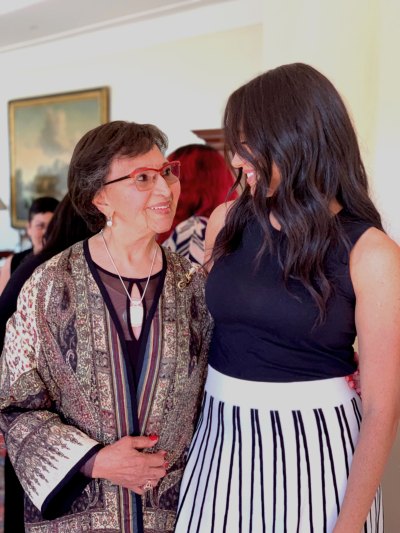While traveling through South Africa, Duchess Meghan, formerly known as Markle, took the time to celebrate the incredible efforts of female activists and politicians who have made significant contributions to positive change. Speaking from the heart, she highlighted the challenges and triumphs these women have faced in their pursuit of equality and justice.
During her speech, the 38-year-old royal shared a poignant reflection, as reported by The Sunday Times. “I was reminded recently that the first one up the mountain often faces the hardest knocks, but they pave the way for everyone who follows,” she said. “You must persevere, knowing that your work benefits not only this generation but also the next, continuing the legacy of the incredible women who came before you.”

Recognizing the Trailblazers
Among the incredible women in attendance was Sophia Williams-De Bruyn, who led a march of thousands of women in Pretoria at just 18 years old in 1956, protesting against segregation. Meghan referred to her as “an inspiration.” She went on to express her admiration for these courageous women who have shown that their struggles can pave the way for future generations.
Read also:Teach Me First Honeytoon A Sweet Blend Of Learning And Fun
Connecting with the Cause
Meghan, now married to Prince Harry, shared her perspective on understanding the issues on the ground. “While we can learn a lot from the outside, through the news, it’s not the same as truly experiencing what it’s like firsthand,” she added. “For much of my life, I’ve been an advocate for women’s and girls’ rights, so this has been an incredibly powerful moment to hear directly from all of you.”
The Need for Global Change
Meghan emphasized the importance of addressing gender-based violence, a challenge that extends far beyond South Africa’s borders. “The leadership and strength shown by these women are remarkable. At a time when gender and gender-based violence are at the forefront of everyone’s minds, I hope their voices will resonate, offering both comfort and driving change,” she stated. “This isn’t just a South African issue; it’s a global problem that requires the attention and effort of everyone, regardless of gender, status, politics, race, or nationality.”



